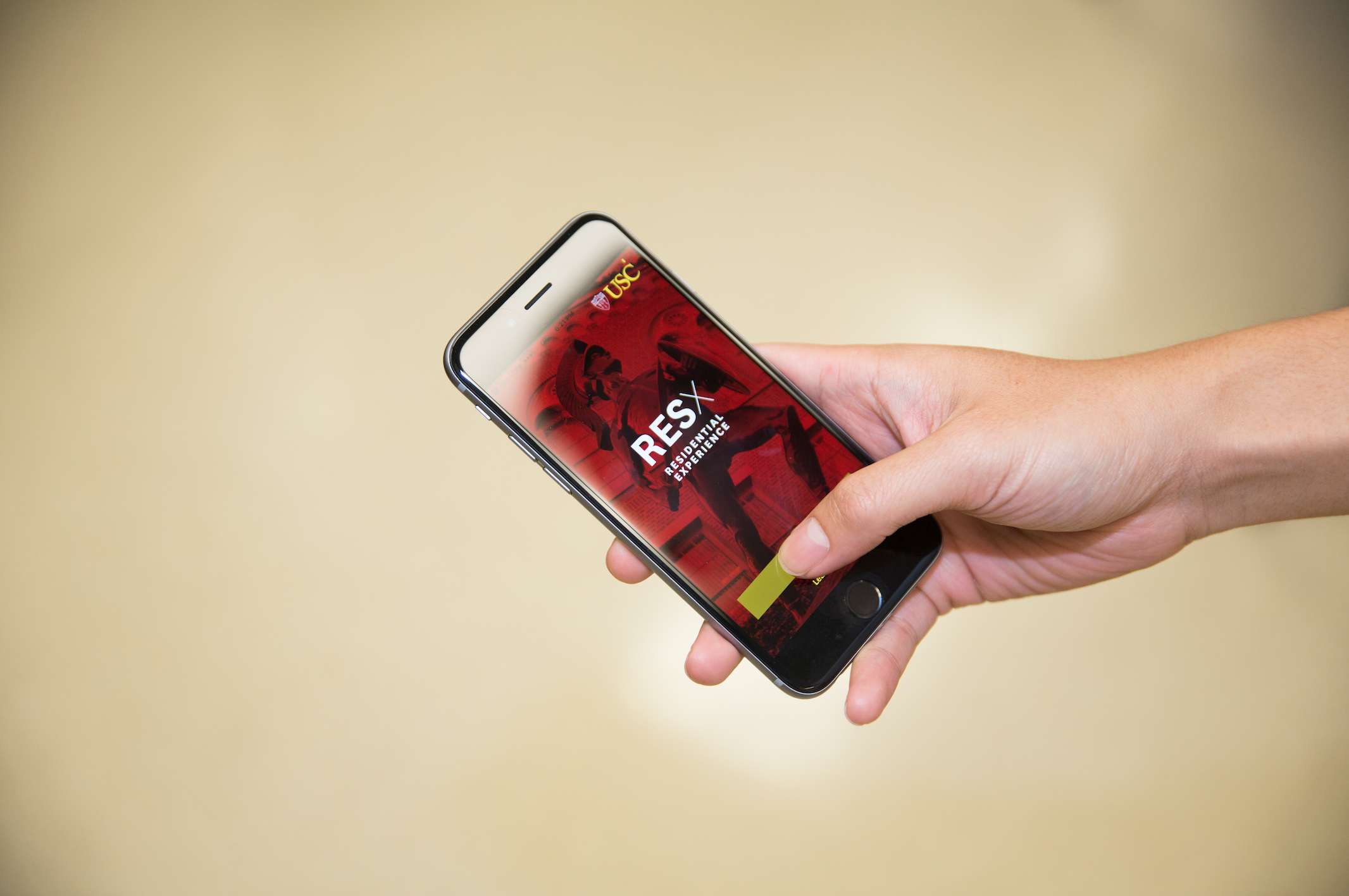Residential Education debuts mobile app
The Office for Residential Education released the “USC Residential Experience” smartphone app this semester to further inform students of events and updates throughout the academic year. The app allows students living in residential colleges to keep track of upcoming events such as Cardinal and Gold events and compete with other students in their residential college to win monthly prizes, such as August’s prize of a $25 gift card to the USC Bookstore.
Residential Education Director Emily Sandoval said that the creators were looking to create a gamification of the residential experience, when developing the app.
Students can earn points by attending residential education events, which contribute to their level on the app, and those with the most points within their residential college win the monthly prizes. Students can also earn badges by attending certain types of events — for example, the “Urban Explorer” badge can be earned by attending five off-campus events.
“When I look at some of our counterparts regionally, there are residential education departments [with] more resource-based apps,” Sandoval said. “I have not found one that is the gamification of the residential experience, so I like to think we’re at the forefront and we’re being innovative with that.”
Noah Gladden, a freshman majoring in astronautical engineering, enjoys the gamified aspects of the app.
“I’ve looked at [the] levels and badges a lot and the leaderboard probably the most,” Gladden said. “I liked the levels and badges, the way it’s set up — it’s cool and nice. I also like that you can make an avatar in the app.”
Students living in the first-year residential colleges can also view the Residential College Cup Leaderboard in the app to track their college’s standing in the cup instead of relying only on the mounted screens at the entrances to their residential colleges.
Residential Education worked with developer Urban Insight throughout the 2016-2017 school year to create the app, Sandoval said.
“We developed all the content. Urban Insight designed the look,” Sandoval said. “We had a group of students that were our focus group, so we met with the students and our staff about four times throughout the year, and they were giving us direct input [on how it should look].”
Although the app was released a few weeks ago, Residential Education is still working with Urban Insight to solve bugs that students have reported in the app.
“[There’s] some latency between when you go to an event and when you get points for it,” Gladden said. “Also, I think the biggest problem, it says ‘unknown housing’ at the top [when I open the app], so I don’t really know if my points are going to the right place.”
Sandoval said that with any app, bugs are to be expected when it’s first released, but that it will keep improving in the weeks to come as they solve problems that arise during use.
Residential Education also has a “wish list” for a second version of the app, which the organization hopes to develop in early 2018 and release next fall.
Assistant Director for North and South Residential Colleges Derek Murakami has worked closely on the app since he joined the Office of Residential Education in March.
“A pretty big wish list item would be GPS, so if you are on campus, maybe near an event … you get a GPS notification [telling you that] an event is happening near you and if you would like to go,” Murakami said.
One of the features that students find useful about the app is its informational abilities to help them see upcoming events easily.
“I really like the app because it’s a great way to motivate people to actually go to the events and meet new people,” said Athira Pratap, a freshman majoring in neuroscience. “It’s cool because it shows which activities are coming up, so it’s an easy way to check.”
In the past, Residential Education has used Facebook, fliers and weekly emails to inform students about events.
“The app makes it more instantaneous,” Sandoval said. “You have it at the press of a button.”
According to Sandoval, 1,359 students have already downloaded the app as of Monday, but Residential Education is planning an advertising campaign in the coming weeks to raise awareness about the app’s features.
Ultimately, Murakami and Sandoval hope that the app can keep students engaged and involved with their residential community.
“What we would love to hear from students is that it helped them connect to USC as a whole, as well as their smaller residential community that they’re a part of, “Murakami said. “That they found students who would attend programs or events with them, that it helped them feel like they were a part of something bigger than just the room that they live in on campus.”

